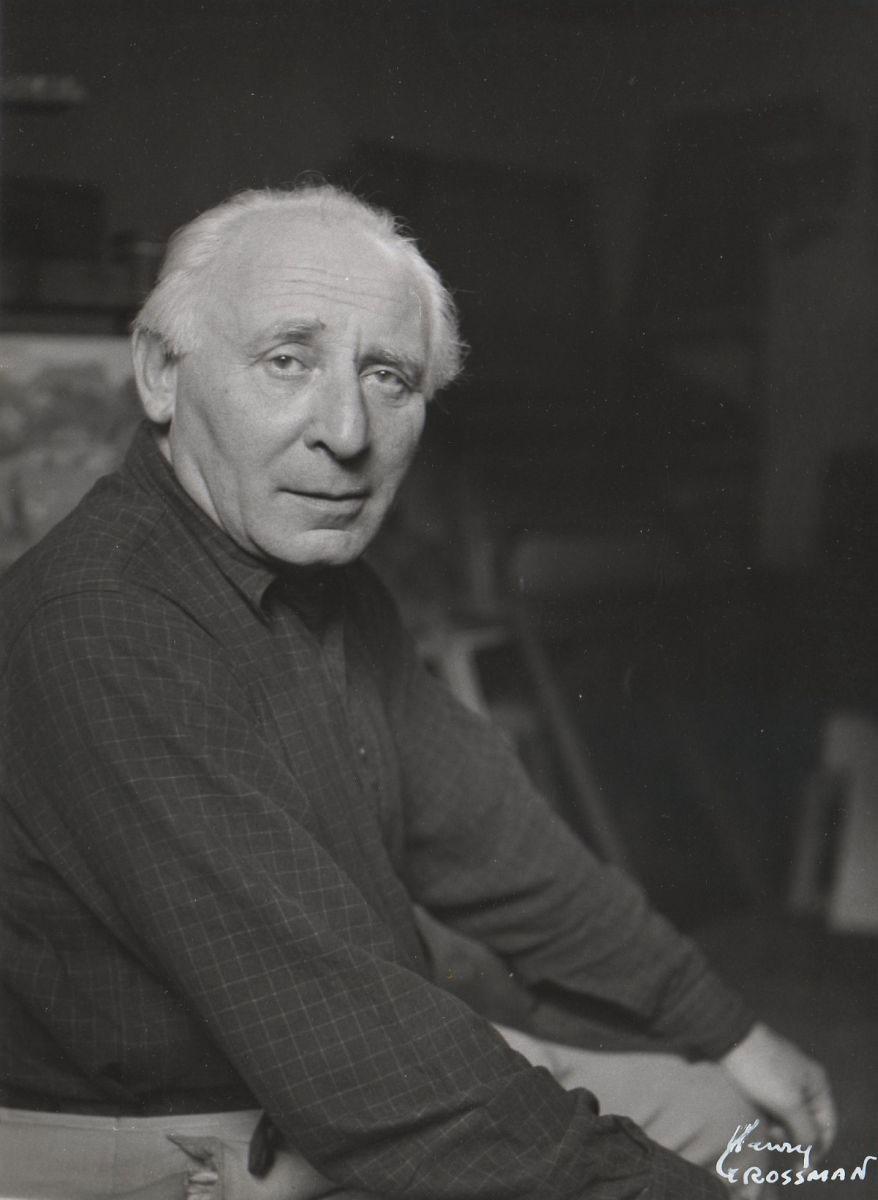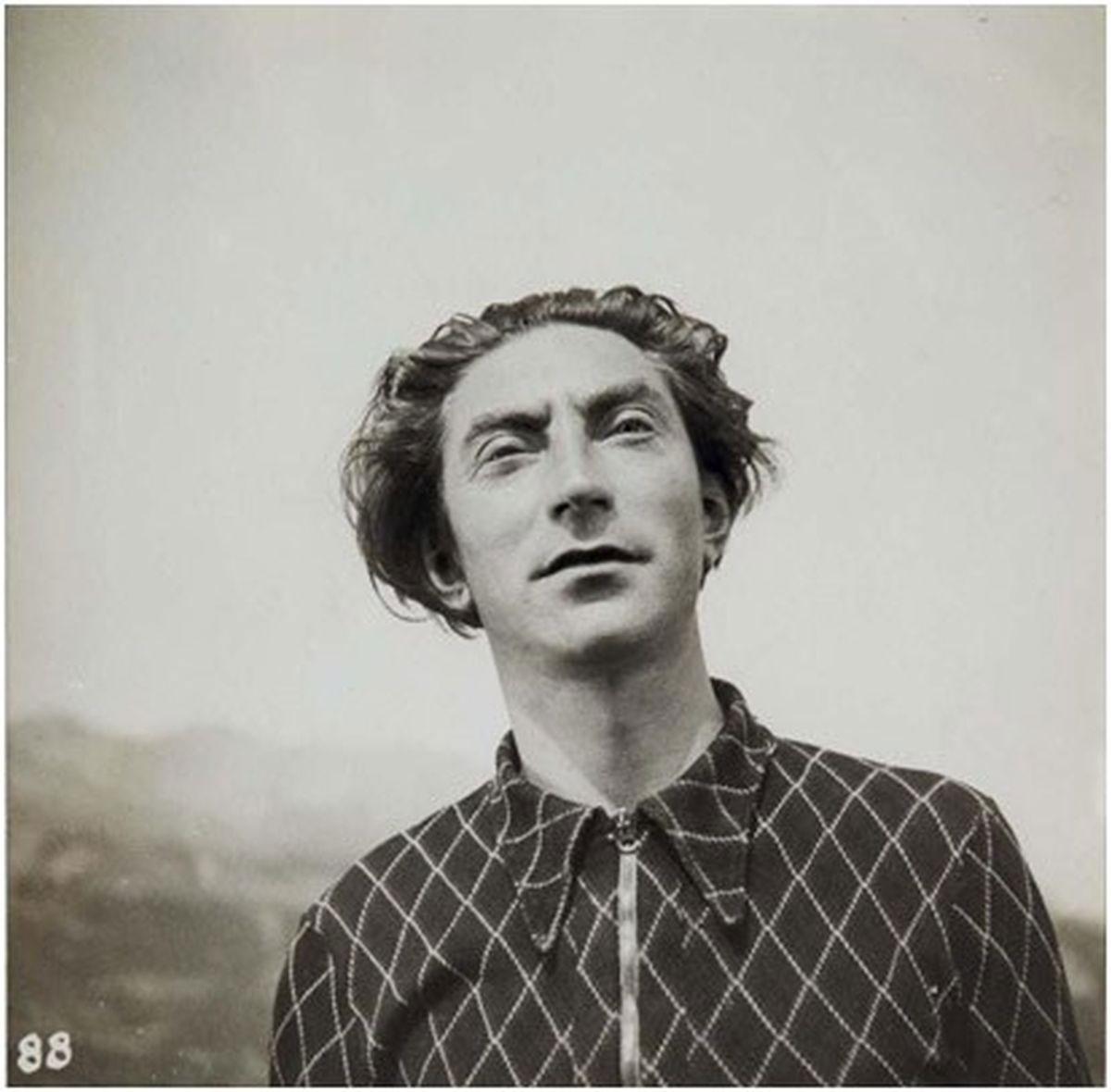Charcoal and crayon on paper
Collection of the Yad Vashem Art Museum, Jerusalem
Acquisition through the generosity of the Dutch Friends of Yad Vashem

Photo by Henry Grossman/Grossman Enterprises LLC. All rights reserved



Sunday to Thursday: 09:00-17:00
Fridays and Holiday eves: 09:00-14:00
Yad Vashem is closed on Saturdays and all Jewish Holidays.
Entrance to the Holocaust History Museum is not permitted for children under the age of 10. Babies in strollers or carriers will not be permitted to enter.
Charcoal and crayon on paper
Collection of the Yad Vashem Art Museum, Jerusalem
Acquisition through the generosity of the Dutch Friends of Yad Vashem

Photo by Henry Grossman/Grossman Enterprises LLC. All rights reserved



Born in Jassy (Iași), Romania. Benjamin Fondane was already publishing his poems at the age of fourteen; later, he also translated Yiddish poetry and wrote a play. In 1919, he moved to Bucharest and began studying law at the University of Jassy but abandoned his studies in 1922. That same year, he founded an avant-garde theater in Bucharest named Insula. A year later he settled down in Paris, where he began to write in French under the pseudonym Fondane. During the 1930s, he mainly wrote poetry, literary reviews and essays on existential philosophy. In February 1940, he was drafted into the French Army and eventually taken captive by the Germans. In 1941, he was released due to poor health and returned to live with his wife and sister in Paris. Michonze drew this portrait of his friend Fondane after his release from captivity. After being denounced, Fondane and his sister were arrested in March 1944, and were interned in the Drancy camp. Although it would have been possible for him to escape, he refused to leave his sister. In May 1944, they were deported to Auschwitz-Birkenau, where they were murdered. This is in all probability the last portrait of Benjamin Fondane.
It is to you I speak, antipodal men,
I speak man to man,
with the little in me of man that remains,
with the scrap of voice left in my throat,
my blood lies upon the roads, let it not, let it
not cry out for vengeance!
The death-note is sounded, the beasts hunted down,
let me speak to you with these very words
that have been our share-
few intelligible ones remain.
A day will come, surely, of thirst appeased,
we will be beyond memory, death
will have finished the works of hate,
I will be a clump of nettles beneath your feet,
-ah, then, know that I had a face
like you. A mouth that prayed, like you.
When a bit of dust, or a dream,
entered my eye, this eye shed its drop of salt. And when
a cruel thorn raked my skin
the blood flowed red as your own!
Yes, exactly like you I was cruel, I
yearned for tenderness, for power,
for gold, for pleasure and pain.
Like you I was mean and anguished,
solid in peacetime, drunk in victory,
and staggering, haggard, in the hour of failure.
Yes, I was a man like other men,
nourished on bread, on dreams, on despair. Oh, yes,
I loved, I wept, I hated, I suffered,
I bought flowers and did not always
pay my rent. Sundays I went to the country
to cast for unreal fish under the eye of God,
I bathed in the river
that sang among the rushes and I ate fried potatoes
in the evening. And afterwards, I came back for bedtime
tired, my heart weary and full of loneliness,
full of pity for myself,
full of pity for man,
searching, searching vainly upon a woman's belly
for that impossible peace we lost
some time ago, in a great orchard where,
flowering, at the center,
is the tree of life.
Like you I read all the papers, all the bestsellers,
and I have understood nothing of the world
and I have understood nothing of man,
though it often happened that I affirmed
the contrary.
And when death, when death came, maybe
I pretended to know what it was, but now truly
I can tell you at this hour,
it has fully entered my astonished eyes,
astonished to understand so little-
have you understood more than I?
And yet, no!
I was not a man like you.
You were not born on the roads,
no one threw your little ones like blind kittens
into the sewer,
you did not wander from city to city
hunted by the police,
you did not know the disasters of daybreak,
the cattle cars
and the bitter sob of abasement,
accused of a wrong you did not do,
of a murder still without a cadaver,
changing your name and your face,
so as not to bear a jeered-at name,
a face that has served for all the world
as a spittoon.
A day will come, no doubt, when this poem
will find itself before your eyes. It asks
nothing! Forget it, forget it! It is nothing
but a scream, that cannot fit in a perfect
poem. Have I even time to finish it?
But when you trample on this bunch of nettles
that had been me, in another century,
in a history that you will have canceled,
remember only that I was innocent
and that, like all of you, mortals of this day,
I had, I too had a face marked
by rage, by pity and joy,
an ordinary human face!
"Préface en prose" (L’Exode), in: Le Mal des fantômes (Paris: Verdier, 2006) p. 151-153.
Translated from French by Michael Weingrad
Born in Kishinev (Chişinău), Bessarabia. In 1919, Michonze began his studies at the Kishinev School of Fine Arts. He continued his education at the National Academy of Fine Arts in Bucharest, where he worked as an assistant set designer at the National Theater. In 1922, he moved to Paris, studying at the School of Fine Arts. In 1937, he spent about a year in the United States. On his return to France, he met the Scottish artist Una Maclean, whom he later married. In May 1940, he joined the French Army and in June, he was captured by German forces and interned in the Stalag XC POW camp near Bremen in December. During his two years there, his Jewish identity remained undiscovered. Upon his return to Paris in December 1942, he drew portraits of prisoners and scenes of the harsh life in the POW camp. He lived in hiding in Paris and Arpajon until liberation. Michonze continued his artistic work in Paris until his death.

Thank you for registering to receive information from Yad Vashem.
You will receive periodic updates regarding recent events, publications and new initiatives.

"The work of Yad Vashem is critical and necessary to remind the world of the consequences of hate"
Paul Daly
#GivingTuesday
Donate to Educate Against Hate


Worldwide antisemitism is on the rise.
At Yad Vashem, we strive to make the world a better place by combating antisemitism through teacher training, international lectures and workshops and online courses.
We need you to partner with us in this vital mission to #EducateAgainstHate
The good news:
The Yad Vashem website had recently undergone a major upgrade!
The less good news:
The page you are looking for has apparently been moved.
We are therefore redirecting you to what we hope will be a useful landing page.
For any questions/clarifications/problems, please contact: webmaster@yadvashem.org.il
Press the X button to continue



